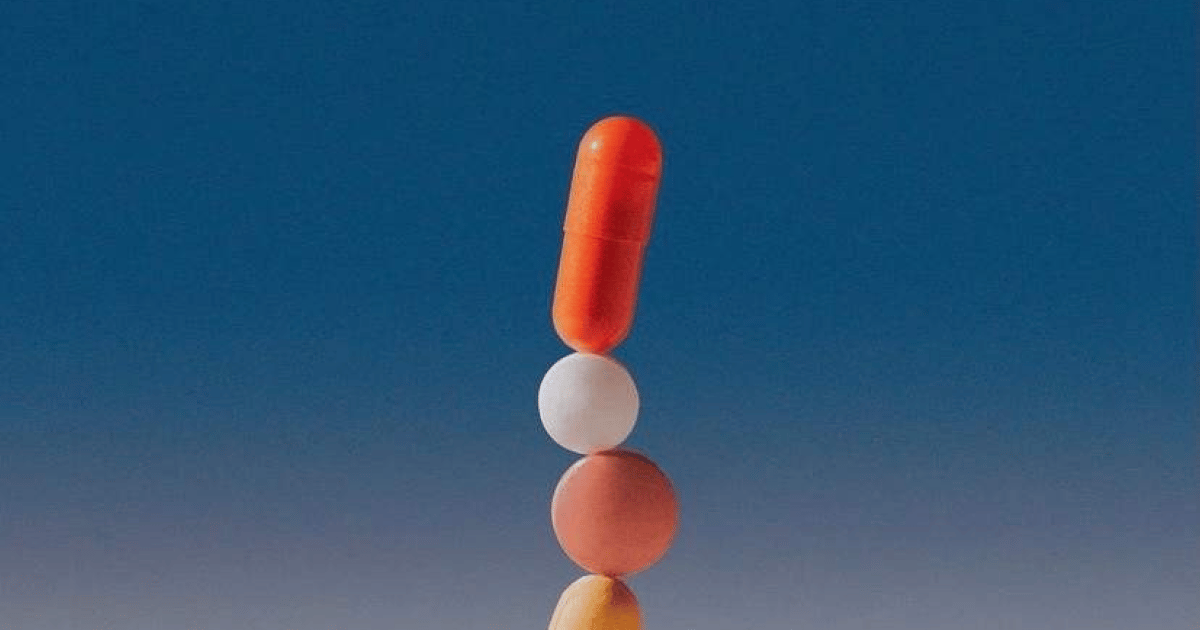Most sleep supplements rely on melatonin. But for many, melatonin causes grogginess, disrupted circadian feedback, or hormonal side effects. If you're looking for natural sleep aids without melatonin, this guide outlines clinically-supported alternatives that improve sleep without altering hormonal rhythms.
Key Takeaways
Melatonin-free sleep aids improve sleep quality without hormonal disruption.
Validated alternatives include magnesium, L-theanine, glycine, GABA, valerian root, chamomile, and apigenin.
These compounds support sleep through mechanisms like GABAergic signaling, thermoregulation, and stress reduction.
Many are safe for long-term use and offer better tolerability than melatonin.
Sleep gains are enhanced when paired with circadian-aligned routines.
Table of Contents
How Melatonin Works — and Why Some Avoid It
Melatonin is a hormone produced in response to darkness that helps synchronize circadian rhythm and initiate sleep. When taken as a supplement, it can alter the body’s natural release patterns, which may blunt endogenous production and compromise long-term sleep architecture.
While melatonin is clinically effective for jet lag and certain circadian disorders, many users report side effects such as next-day grogginess, altered dream patterns, or hormonal discomfort. Some individuals also exhibit low responsiveness or paradoxical effects, particularly those with neurodivergent profiles or dysregulated cortisol curves.
Summary Table: Non-Melatonin Natural Sleep Aids
Compound | Mechanism | Primary Benefit | Timing |
|---|---|---|---|
Magnesium | NMDA antagonism, muscle relaxation | Shortens sleep latency, relaxes CNS | 30–60 min before bed |
L-Theanine | Promotes alpha brain waves, increases GABA | Calms the mind, reduces anxiety | 30–60 min before bed |
Glycine | Lowers core body temperature | Deepens sleep, improves efficiency | 60 min before bed |
GABA | Inhibitory neurotransmitter | Blunts overexcitation | 30 min before bed |
Apigenin | Binds benzodiazepine receptors | Reduces neural activity, lowers stress | 45–60 min before bed |
Valerian Root | Inhibits GABA breakdown | Aids sleep initiation | 1 hour before bed |
Chamomile | Contains apigenin and terpenoids | Mild sedation, lowers arousal | Tea or extract form |
Detailed Overview of Each Natural Sleep Aid
Magnesium
Magnesium—especially in forms like glycinate or threonate—acts as a central nervous system depressant, helping to regulate GABA signaling and reduce NMDA-mediated excitation. It’s particularly effective in people experiencing light sleep, anxiety, or muscle-related sleep disruptions. Magnesium deficiency is also prevalent in individuals with poor sleep quality.
L-Theanine
An amino acid found in green tea, L-theanine promotes alpha wave activity in the brain while increasing GABA and dopamine levels. This helps quiet mental chatter without inducing sedation. It’s especially effective for individuals whose insomnia stems from stress or rumination.
Glycine
Glycine functions as both an inhibitory neurotransmitter and a thermoregulatory modulator. It lowers core body temperature—one of the body’s natural triggers for sleep onset. Studies have shown that 3 grams of glycine taken before bed can reduce time to fall asleep and increase subjective sleep quality.
GABA
Gamma-aminobutyric acid (GABA) is the brain’s main inhibitory neurotransmitter. Supplementing with GABA may help mitigate hyperarousal, though its ability to cross the blood-brain barrier is debated. However, newer formulations like PharmaGABA may be more bioavailable and show modest improvements in sleep depth and onset latency.
Apigenin
Apigenin, a flavonoid found in chamomile and parsley, binds to benzodiazepine receptors on GABA-A channels. Unlike synthetic benzodiazepines, apigenin has a mild, non-habit-forming sedative effect. It may be particularly effective in cases of stress-related insomnia or cortisol elevation at night.
Valerian Root
Valerian root contains valerenic acid, which inhibits the breakdown of GABA and extends its availability in the synaptic cleft. Its efficacy is moderate, but well-tolerated, and it has been used historically as a calming herb. Best suited for sleep initiation issues rather than maintenance.
Chamomile
Chamomile extract—especially concentrated forms—contains apigenin and other terpenoids that reduce mild anxiety and promote calm. Though mild in strength, its effects are cumulative and may be ideal for individuals looking to avoid pharmacological interventions entirely.
Further Reading
Best Natural Sleep Aids That Actually Work (Backed by Science)
A complete overview of science-backed natural sleep aids, including how they work and how to use them safely.How to Reset Your Circadian Rhythm Naturally: A Complete Guide
Explains how sleep timing, light exposure, and supplements like melatonin affect biological rhythms.Cellular Health Optimization Protocols for Aging Professionals
Discusses how sleep quality ties into mitochondrial health, autophagy, and systemic repair.Longevity Nutrition Plans for Busy Professionals
Covers dietary strategies and micronutrients that indirectly support restorative sleep.
Natural Sleep Aids FAQ
What is the best natural sleep aid without melatonin?
There’s no single best option. Magnesium and L-theanine are widely tolerated and effective for many. Glycine is also supported by clinical evidence.
Can I use multiple sleep aids together?
Yes, several can be combined. A common stack includes magnesium, L-theanine, and apigenin. Always test combinations cautiously.
Are these options safe for long-term use?
Most are safe for regular use. However, valerian root should be cycled to prevent tolerance. Consult a healthcare provider if taking other medications.
How soon before bed should I take these supplements?
Magnesium and L-theanine: 30–60 minutes before bed. Glycine: 60 minutes before bed. Valerian root: 1–2 hours before bed.
Do these natural aids help with sleep maintenance?
Some, like GABA and valerian root, may reduce nighttime awakenings. Others help more with sleep initiation.
Are these supplements habit-forming?
No. Unlike prescription sleep aids, they do not alter receptor density or induce dependency.
Can these supplements replace good sleep hygiene?
They are adjuncts, not replacements. Sleep environment, light exposure, and daily rhythm still matter more.
Do any of these interact with medications?
Yes. Valerian and GABA can interact with sedatives. Chamomile may affect anticoagulants. Always check for interactions.
Do they work for shift workers or jet lag?
They may help shift adaptation, but circadian rhythm cues like light exposure and meal timing are more effective for realignment.
Is it better to take these on an empty stomach?
Some, like glycine and GABA, work better without food. Magnesium and valerian may be gentler with a light snack.

